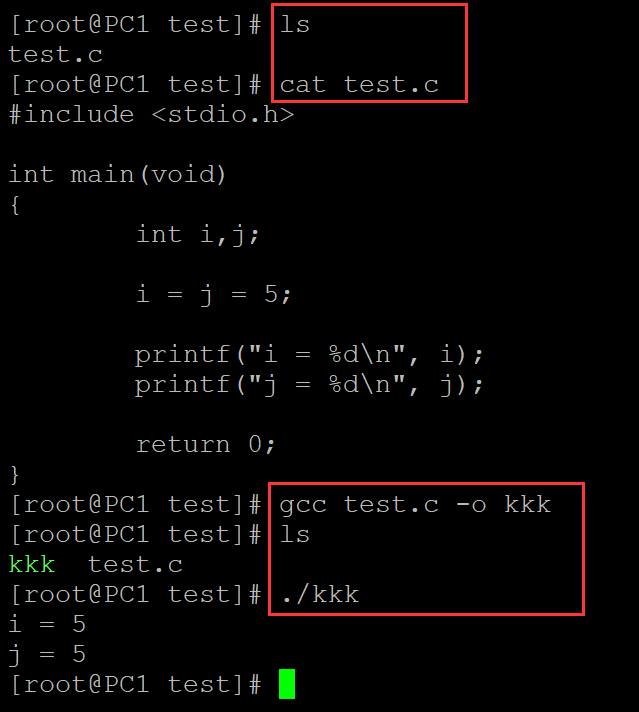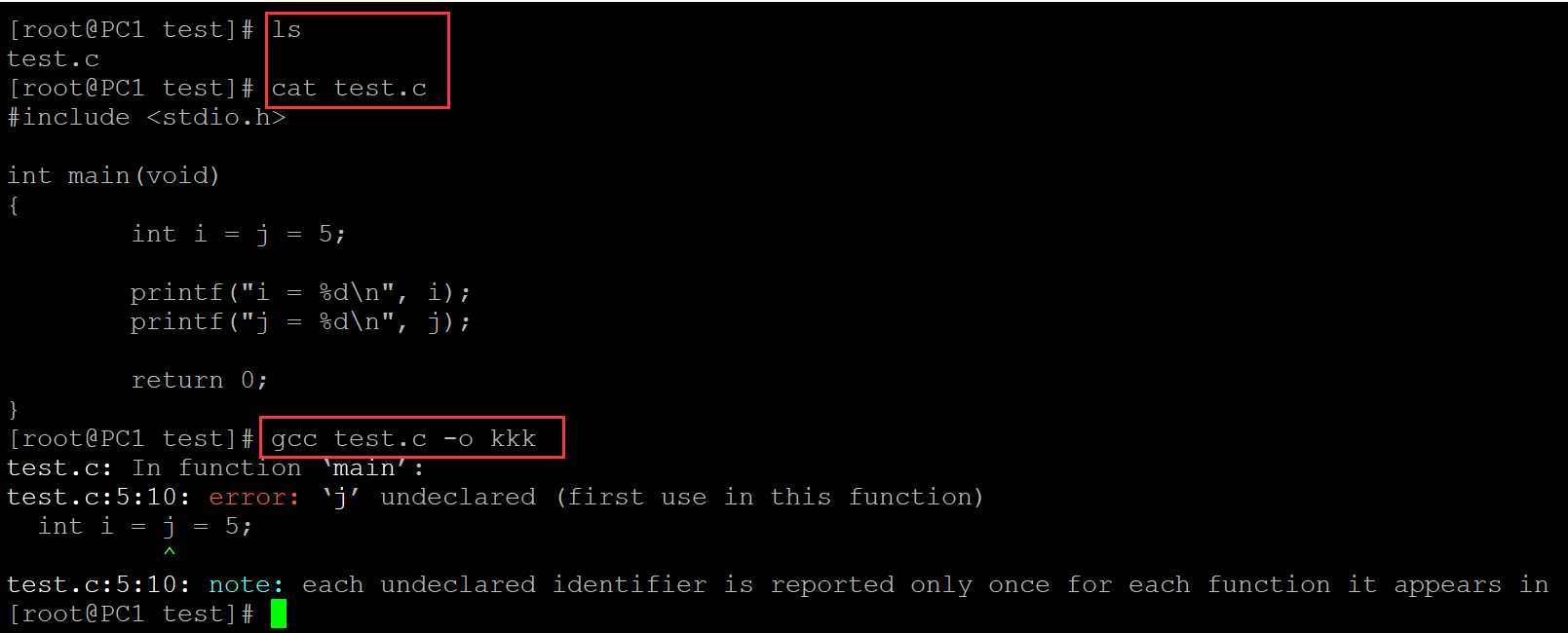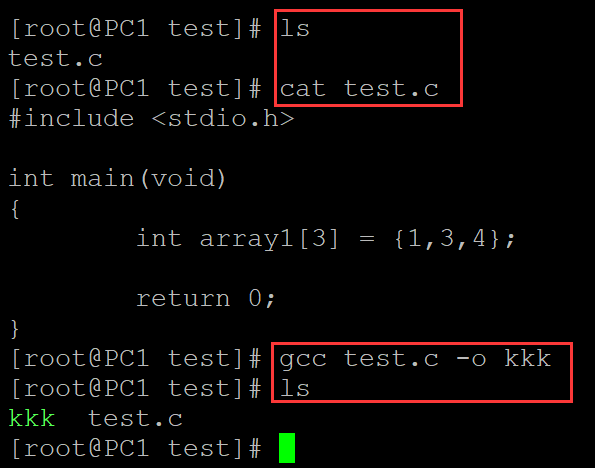c语言中多个变量连续赋值
001、
[root@PC1 test]# ls test.c [root@PC1 test]# cat test.c ##测试c程序 #include <stdio.h> int main(void) { int i,j; i = j = 5; // 连续赋值 printf("i = %d\n", i); printf("j = %d\n", j); return 0; } [root@PC1 test]# gcc test.c -o kkk [root@PC1 test]# ls kkk test.c [root@PC1 test]# ./kkk i = 5 j = 5

002、
[root@PC1 test]# ls test.c [root@PC1 test]# cat test.c #include <stdio.h> int main(void) { int i = j = 5; // 无法再初始化过程中连续赋值 printf("i = %d\n", i); printf("j = %d\n", j); return 0; } [root@PC1 test]# gcc test.c -o kkk test.c: In function ‘main’: test.c:5:10: error: ‘j’ undeclared (first use in this function) int i = j = 5; ^ test.c:5:10: note: each undeclared identifier is reported only once for each function it appears in

003、
[root@PC1 test]# ls test.c [root@PC1 test]# cat test.c ## 测试c程序 #include <stdio.h> int main(void) { int array1[3] = {1,3,4}; // 数组可以连续赋值初始化 return 0; } [root@PC1 test]# gcc test.c -o kkk ## 编译 [root@PC1 test]# ls kkk test.c

004、
[root@PC1 test]# ls test.c [root@PC1 test]# cat test.c ## 测试c程序 #include <stdio.h> int main(void) { int array[3]; array[3] = {1,3,8}; //数组中不可以这样连续赋值 return 0; } [root@PC1 test]# gcc test.c -o kkk ## 无法编译 test.c: In function ‘main’: test.c:7:13: error: expected expression before ‘{’ token array[3] = {1,3,8}; ^

。
分类:
c/c++






【推荐】国内首个AI IDE,深度理解中文开发场景,立即下载体验Trae
【推荐】编程新体验,更懂你的AI,立即体验豆包MarsCode编程助手
【推荐】抖音旗下AI助手豆包,你的智能百科全书,全免费不限次数
【推荐】轻量又高性能的 SSH 工具 IShell:AI 加持,快人一步
· 震惊!C++程序真的从main开始吗?99%的程序员都答错了
· 【硬核科普】Trae如何「偷看」你的代码?零基础破解AI编程运行原理
· 单元测试从入门到精通
· 上周热点回顾(3.3-3.9)
· winform 绘制太阳,地球,月球 运作规律
2023-11-06 linux 中查看GNU c库版本 libc.so.6(GLIBC版本)
2023-11-06 configure: error: You need zlib >= 1.2.3 to build bin/PopLDdecay
2023-11-06 conda 升级到最新版本
2023-11-06 centos7 中 安装 rmblast 软件
2022-11-06 python中os模块下路径的常见操作
2021-11-06 docker pull越来越慢的解决方法
2021-11-06 Vmware虚拟机和docker在win10上不兼容的处理